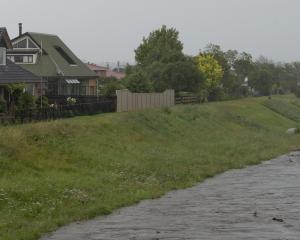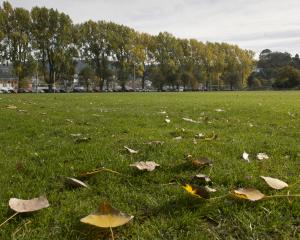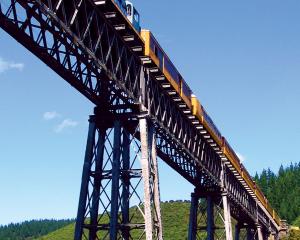Dunedin's harbourside redevelopment plan came in for heavy criticism from industry yesterday, as business after business made it clear the proposal could seriously compromise their operations.
Heavy industry, heavy traffic and the resulting noise could not go hand-in-hand with cafes, bars and housing, submitters said.
The proximity to the harbour, and the synergies with neighbouring businesses, were common reasons firms wanted to continue operating from the area.
It is understood there has been considerable disquiet among some city councillors about the issue, and some close votes behind closed doors about the project's future.
The third day of a two-week hearing to decide on plan changes that would allow a redevelopment of the Steamer Basin started late, and continued with only two commissioners, Roger Tasker and John Lumsden, after Dunedin city councillor Colin Weatherall fell ill.
Bradken manufacturing manager Roger Denston told the hearing his company was against the plan change.
The foundry company had operated at the harbourside since 1896, had a turnover in excess of $7 million, and had 47 full-time employees.
"These people are potentially affected."
The company's operational hours included a shift that lasted until 11pm, and included weekends.
Unobstructed access across the industrial area to transport goods was essential.
"Residential focus in the Mason St area is incompatible with foundry operations."
Relocation of a large steel foundry was not economically viable. Mr Denston said there was merit in the redevelopment, but he wanted it restricted to the inner basin area.
Counsel Phil Page appeared for Kaan's Catering Supplies, Crawford Glass, Action Engineering and Ferrum Engineering, companies that had sites on the Birch St and Fryatt St sides of the Steamer Basin.
Mr Page told the hearing the proposed plan change would make existing industrial activities in the Fryatt St character precinct non-complying, and introduce housing, cafes and hotels.
"This is about as clear a message as [the] council could send that it wants existing industrial activities to go away."
Changing the land zoning effectively determined other land uses were more desirable than the industry that operated there.
"Whether [the] council is right or wrong about that does not matter, social engineering of this sort is simply not a function of a district plan."
He said proponents of the plan suggested new occupants at the harbourside would move there fully aware of existing industry.
"Many people choose to live around airports, yet still complain about aircraft noise. That is not rational, but it is a fact."
Ferrum Engineering managing director Ian Kemp told the hearing his business could be required to operate 24 hours a day, seven days a week. Noise could not be contained on its outdoor slipway, and having more people at the harbourside would hinder the company's ability to access and service its site.
The plan change would not only be detrimental to Ferrum, but to 90 other businesses that directly or indirectly benefited from its operation.
Action Engineering managing director Mark Cameron said his business, offering specialist engineering services for the marine industry, could not operate anywhere else in Dunedin.
"We are dependent on our location and the synergy created by the other related engineering trades, suppliers and clients within the zone."
He suggested an alternative idea, which was to rebuild entire blocks with large, modern developments.
Commissioner John Lumsden said overseas ports were becoming more people orientated, rather than industry orientated.
Mr Cameron said he did not see the same pressures in Dunedin for the area to be accessed, as any part of the harbour was open to people.
Kaan's Catering supplies had about 70% of its Dunedin customers within a 3.5km radius of its Willis St location, managing director Lindsay Kaan said.
The business operated 24 hours a day, six days a week, and he was considering changing to seven days a week.
Large truck and trailer units made deliveries between 3am and 8am each day, making 400 vehicle movements a day, generating much noise.
If the plan change went ahead, it would be too difficult to continue to operate.
"With no viable alternative locations within Dunedin, we would be compelled to move out of the city," Mr Kaan said.












